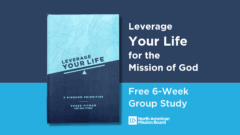The world only works when life is held as precious. Each of us wants to live more than we want to die. We are overwhelmed by the longing to not die, and consumed with the desire to go on living.
A thousand times a day we make subconscious choices that preserve our lives. We brake when we come to a stop sign. We replace the battery in the smoke detector. We hold on to the handrail. We fasten the safety belt. We double-check the dosage. We do it all so we can continue to live. We do it all to diminish the likelihood of our own demise.
And it is not just our own life that we regard as precious, but all life. Just as we make decisions to protect our own lives, we make decisions to protect others’. We tighten our children’s seatbelts. We put the knives up high. We pay the salaries of police officers. We stop and help when we spot even a stranger in distress.
Life is the most precious thing. The world only works when we maintain this tacit agreement that life is precious, that I will do all I can to preserve both mine and yours, that you will do all you can to protect both yours and mine. Both civilization and civility stand or fall on this simple agreement.
The alternative is unthinkable. The alternative is cars swerving to meet oncoming traffic, bicycles drifting out of the bike lane, toddlers roaming at will, hospitals empty and unstaffed. The alternative might even be a pilot setting his aircraft so that it gradually coasts straight into the ground.
The world reacted with horror—justified horror—when they learned that Andreas Lubitz had deliberately crashed Germanwings flight 9525, taking his own life and the lives of the other 149 passengers and crew members. The reason for our shock is that he violated the agreement. He chose to take life instead of perserve life.
There are a hundred explanations for this desire to protect and preserve life. But the only one that really makes sense, and the only one that is compelling enough to believe, is that God is the creator of life, and that he has given life intrinsic value. He has made us this way, and deeply ingrained it within each one of us. To recklessly endanger life is to reject both the giver and his gift.
This, then, is why we react with such utter horror to what Lubitz did. He chose to diminish the value of his life, and the lives of each of those 149 people. We know intuitively that this is an outrage, the deepest kind of transgression. And it scares us. It terrifies us. It is unfair, unjust, unconscionable, unthinkable. And yet there it is, emblazoned in the headlines: He did it, and he could have done it to us. He rejected the most basic information, and broke our most foundational agreement.










